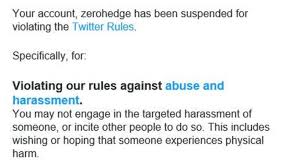Archive for January, 2018|Monthly archive page
2016 PRESIDENTIAL ELECTION, ABC NEWS, ALTERNET, AP, ARTICLE 48, BARACK OBAMA, BUZZFEED, CBS NEWS, CNN, CROOKS AND LIARS, DAILY KOZ, DAVID BROOKS, DONALD TRUMP, ENABLING ACT, FACEBOOK, FBI, FRANCE, FRANZ HALDER, FRANZ VON PAPEN, GUNTER MEISNER, HERMAN GORING, HERMAN WOUK, JAMES COMEY, MARK SHIELDS, MICHAEL FLYNN, MOTHER JONES, MOVEON, NAZI GERMANY, NBC NEWS, NEWSWEEK, NPR, PAUL VON HINDENBURG, PBS NEWSHOUR, POLITICO, PRUSSIA, RAW STORY, REICHSTAG, REUTERS, ROBERT MUELLER, RUSSIA, SALLY YATES, SALON, SEATTLE TIMES, SHIELDS AND BROOKS, SLATE, THE ATLANTIC, THE CHICAGO SUN-TIMES, THE CHICAGO TRIBUNE, THE DAILY BEAST, THE GUARDIAN, THE HILL, THE HUFFINGTON POST, THE LOS ANGELES TIMES, THE NATION, THE NEW YORK TIMES, THE WASHINGTON POST, THE WINDS OF WAR, TIME, TWITTER, U.S. NEWS & WORLD REPORT, UPI, USA TODAY, USA TODAY ADOLF HITLERR, VLADIMIR PUTIN, WALTER VON BRAUCHITSCH, WOLFGANG PREISS, WORLD WAR 11, WORLD WAR ii
In Bureaucracy, History, Law, Law Enforcement, Military, Politics, Social commentary on January 31, 2018 at 12:06 am
After Donald Trump won the 2016 election, many people feared he would embark on a radical Right-wing agenda. But others hoped that the Washington bureaucracy would “box him in.”
The same sentiments echoed throughout Germany after Adolf Hitler was appointed Chancellor of Germany on January 30, 1933.
The 1983 TV mini-series, The Winds of War, offered a dramatic example of how honorable men can be overwhelmed by a ruthless dictator.
Based on the bestselling 1971 historical novel by Herman Wouk, the mini-series factually re-created the major historical events of World War II.

One of those events took place on November 5, 1939.
General Walther von Brauchitsch is summoned to the Chancellery in Berlin to meet with Adolf Hitler. He carries a memorandum signed by all the leaders of the German Wehrmacht asserting that Case Yellow—Hitler’s planned attack against France—is impossible.
Meanwhile, at the German army headquarters at Zossen, in Berlin, the Wehrmacht’s top command wait for word from von Brauchitsch.
CHANCELLERY:
Von Brauchitsch hands the memorandum to Hitler, who reads it.
ZOSSEN:
Brigadier General Armin von Roon: I must confide in you on a very serious matter. I have been approached by certain army personages of the loftiest rank and prestige with a frightening proposal.
Chief of the General Staff Franz Halder: What did you reply?
Von Roon: That they were talking high treason.
CHANCELLERY:
Adolf Hitler (slamming down the memorandum): So—what is new in all this?

Gunter Meisner as Adolf Hitler in “The Winds of War”
Walther Von Brauchitsch: Fuhrer, it is the army’s final position that Case Yellow cannot proceed.
Hitler: Why not?
Von Brauchitsch: Because of the military fundamentals as stated.
Hitler: Such as?
Von Brauchitsch: The meteorologists predict continuous soaking rains for weeks.
Hitler: It rains on the enemy, too.
ZOSSEN:
Von Roon: The conspiracy has been going on that long—since Czechoslovakia [1938)?
Halder: If the British had not caved in at Munich [where France and Britain sold out their ally, Czechoslovakia]—perhaps. But they did. And ever then, ever since his big triumph, it has been hopeless. Hopeless.
Von Roon: Empty talk, talk, talk. I am staggered.
Halder: A hundred times I myself could have shot the man. I can still at any time. But what would be the result? Chaos. The people are for him. He has unified the country. We must stick to our posts and save him from making military mistakes.
Halder: But we really cannot proceed with Case Yellow.
Von Roon: Brauchitsch will get a postponement.
Halder: And if he does not?
CHANCELLERY:
Von Brauchitsch: Fuhrer, even the supply of artillery shells is totally inadequate.

Wolfgang Preiss as Walter von Brauchitsch in “The Winds of War”
Hitler: Who says so?
Von Brauchitsch: General Thomas, my chief of economics and armament.
Hitler: Do you know how many artillery shells of all calibers we have in the staging areas—right this minute?
Von Brauchitsch: No.
Hitler: How many we have in the reserve dumps in the West?
Von Brauchitsch: No, it’s up to my staff—
Hitler: What the monthly annual production of shells is? What the projected rise in production of the next six months is, month by month?
Von Brauchitsch: Who keeps such figures in his head?
Hitler: I do! The supply is adequate. I tell you so. And I’m a field soldier who depended on artillery for four years to protect his life. [He hands von Brauchitsch a sheaf of armaments figures.] Check with your staff. if one of those figures is wrong, you can postpone Case Yellow. Otherwise—you march! And next time you come to see me, know what you’re talking about!
Von Brauchitsch: If we march unprepared as we are, defeatism will run rampant. It will destroy the Wehrmacht and the Fatherland. The morale of the army was low, even in the Polish campaign.
Hitler: You question to me—to me—the courage of the German soldier?
Von Brauchitsch: I’m talking facts!
Hitler: What facts? Back up this monstrous assertion! In what units was morale low? What action was taken? How many death sentences were handed out for cowardice? Speak up! I’ll fly to the front and pass the death sentences myself. One specific instance.
Von Brauchitsch: It was common knowledge—
Hitler: Common knowledge? What is common knowledge is that army headquarters at Zossen crawls with cowards. You opposed me in rearming the Rhineland. You opposed me on the [union] with Austria. You opposed me on Czechoslovakia, until the British came crawling to me. You dirtied in your trousers, you heroes at Zossen, at the idea of marching into Poland. Well, have I once been wrong? Have you once been right? Answer me!
Von Brauchitsch: Mein Fuhrer—
Hitler: Tell everyone who signed this insubordinate Zossen rubbish to beware! I will ruthlessly crush everybody up to the rank of a Field Marshal who dares to oppose me. You don’t have to understand. You only have to obey. The German people understand me. I am Germany.
Fast forward 79 years from Adolf Hitler’s stormy confrontation with Walter von Brauchitsch to January 26, 2018.
President Donald Trump—having fired FBI Director James Comey, attacked the integrity of the American Intelligence community and tried to fire Independent Counsel Robert Mueller—can equally say: I am the destiny of America.
2016 PRESIDENTIAL RACE, ABC NEWS, ACCESS HOLLYWOOD, ADULTERY, ALTERNET, ANDREW JACKSON, AP, BARRON TRUMP, BILLY BUSH, BUZZFEED, CBS NEWS, CNN, CROOKS AND LIARS, DAILY KOZ, DAVOS ECONOMIC CONFERENCE, DIVORCE, DONALD TRUMP, FACEBOOK, FLORIDE EATON, GOOD MORNING AMERICA, HUSH MONEY, IN TOUCH WEEKLY, JIMMY KIMMEL, JOHN B. TIMBERLAKE, JOHN C. CALHOUN, JOHN EATON, LATE NIGHT WITH STEPHEN COLBERT, MARGARET "PEGGY" EATON, MELANIA TRUMP, MICHAEL COHEN, MOTHER JONES, MOVEON, NBC NEWS, NEWSWEEK, NPR, PEGGY EATON, PETTICOAT AFFAIR, POLITICO, PORN MOVIE BUSINESS, RAW STORY, REUTERS, SALON, SCANDAL, SEATTLE TIMES, SLATE, STEPHEN COLBERT, STORMY DANIELS, THE ATLANTIC, THE CHICAGO SUN-TIMES, THE CHICAGO TRIBUNE, THE DAILY BEAST, THE GUARDIAN, THE HILL, THE HUFFINGTON POST, THE LOS ANGELES TIMES, THE NATION, THE NEW YORK TIMES, THE WASHINGTON POST, TIME, TWITTER, U.S. NEWS & WORLD REPORT, UPI, USA TODAY
In Bureaucracy, History, Politics, Social commentary on January 30, 2018 at 12:15 am
On January 17, In Touch Weekly published excerpts of a 2011 interview it had obtained with porn star Stormy Daniels. In it, she had bragged of having a 2006 extramarital tryst with Donald Trump.
Since then, the story has provided fodder for magazine writers and comedians—such as late night Late Night TV host Stephen Colbert.
On the eve of President Trump’s attending an economic conference in Davos, Switzerland, Colbert joked: There was a good reason why First Lady Melania Trump wasn’t traveling with him:
“Yes, there were logistical issues. For instance, the weather. She was afraid it was going to be too Stormy.”
Trump and Stormy
Trump and Stormy
When his wife’s away, Trump thinks, “Why worry?
Sex with sluts is kinky.
And they don’t mind I’m really stinky.”
But for Melania, the scandal can’t be a laughing matter.
On January 26, her spokeswoman, Stephanie Grisham, tweeted: “The laundry list of salacious & flat-out false reporting about Mrs. Trump by tabloid publications & TV shows has seeped into ‘main stream media’ reporting. She is focused on her family & role as FLOTUS – not the unrealistic scenarios being peddled daily by the fake news.”
While Trump was in Davos, Melania visited the United States Holocaust Memorial Museum in Washington, D.C. She then flew to West Palm Beach, Florida.
Notably, she didn’t post a photo of herself with Trump to mark his first year as President. Instead, she posted on Twitter a picture of herself grinning while standing next to an unsmiling Marine.

There has been much speculation on social media about whether Melania might divorce Trump—now or later—over his rampant infidelities.
(In his infamous 2005 Access Hollywood exchange with Billy Bush, Trump admitted: “You know I’m automatically attracted to beautiful–I just start kissing them. It’s like a magnet. Just kiss. I don’t even wait. And when you’re a star they let you do it. You can do anything. Grab them by the pussy. You can do anything.)

Donald Trump, Adrianne Zucker and Billy Bush
What would happen if Melania decided to file for divorce while they still occupied the White House?
The Presidency of Andrew Jackson provides a partial answer.
In 1829, his Secretary of War, John Eaton, married Margaret “Peggy” O’Neill, a former tavern maid with a supposedly lurid past.
In 1828, Margaret’s first husband, John B. Timberlake, a navy sailor, had died unexpectedly. Rumors circulated that he had committed suicide over his wife’s alleged affair with Eaton. (Medical examiners concluded that Timberlake died of pneumonia brought on by pulmonary disease.)
Both Eaton and Margaret denied the affair, claiming to be nothing more than friends. When they married shortly after Timberlake’s death, the ladies of Washington society ostracized the new couple.
Jackson sympathized with his friend, Eaton. Jackson’s late wife Rachel—whom he had unwittingly married before her divorce from her first husband was final—had also been the victim of social gossip when she first came to Washington.
Vice President John C. Calhoun’s wife, Floride, led Washington’s elite in snubbing the Eatons. They refused to pay courtesy calls on the Eatons at their home or receive them as visitors, and denied them invitations to parties and other social events.
Jackson sided with the Eatons. His late wife, Rachel—whom he had unwittingly married before she divorced her first husband—had been mercilessly attacked during Jackson’s 1828 Presidential campaign. Jackson believed these attacks caused Rachel’s death on December 22, 1828, after his election to the Presidency.
For the rest of Jackson’s first term, his opponents used the “Petticoat Affair,” as it was known, to attack the President’s moral judgment and his administration’s policies and appointees.
It finally ended in 1831. Eaton and Secretary of State Martin Van Buren resigned to allow Jackson to install new members to his cabinet and protect his Presidency from further scandal.
Now, fast forward to 2018:
Trump and Stormy
Trump and Stormy
What a couple—she’s got boobs; he’s horny.
Trumpy spanks his wanker
And says “It’s fun; it’s lots of fun.
It’s just like doing my Ivanka.”
If Melania divorced Trump while he is still President, the Peggy Eaton scandal would pale by comparison.
- Washington would divide into two camps—those supporting the President and those supporting the First Lady.
- Reporters would besiege the White House for separate interviews—with Trump and Melania.
- News media would be filled with stories recounting Trump’s extramarital affairs—not just during his current marriage but during his marriages to his ex-wives Ivana and Marla.
- Trump would vent his anger and frustrations on Twitter—as he does whenever he’s thwarted. These would fuel more controversy via sensational news stories.
- His legislative agenda would grind to a complete halt as Republicans were distracted and Democrats took advantage of it.
- Comedians like Jimmy Kimmel and Stephen Colbert would find themselves in comic heaven, with Trump’s outrageous comments and tweets practically writing their joke routines.
- Trump’s diehard supporters among the Religious Right would be pressed to defend or condemn his multiple adulteries.
- These would distract Republicans from effectively pursuing Trump’s—and their—social and political agenda.
Stay tuned for possibly tumultuous developments.
Pay, pay, pay the porn star’s silence
There’s an election.
You don’t want the world to know that you
Can’t get erection.
2016 PRESIDENTIAL RACE, ABC NEWS, ADULTERY, ALTERNET, AP, BARRON TRUMP, BUZZFEED, CBS NEWS, CNN, CROOKS AND LIARS, DAILY KOZ, DONALD TRUMP, FACEBOOK, GOOD MORNING AMERICA, HUSH MONEY, IN TOUCH WEEKLY, MELANIA TRUMP, MICHAEL COHEN, MOTHER JONES, MOVEON, NBC NEWS, NEWSWEEK, NPR, POLITICO, PORN MOVIE BUSINESS, RAW STORY, REUTERS, SALON, SEATTLE TIMES, SLATE, STORMY DANIELS, THE ATLANTIC, THE CHICAGO SUN-TIMES, THE CHICAGO TRIBUNE, THE DAILY BEAST, THE GUARDIAN, THE HILL, THE HUFFINGTON POST, THE LOS ANGELES TIMES, THE NATION, THE NEW YORK TIMES, THE WASHINGTON POST, TIME, TWITTER, U.S. NEWS & WORLD REPORT, UPI, USA TODAY
In Bureaucracy, History, Politics, Social commentary on January 29, 2018 at 12:25 am
Trump and Stormy
Trump and Stormy
What a couple–they’re so dumb and wormy.
They are, I tell you, brother
A match that’s made for one another.
On January 12, the Wall Street Journal announced in a front-page headline:
TRUMP LAWYER ARRANGED $130,000 PAYMENT
FOR ADULT FILM-STAR’S SILENCE
According to the story that followed, real estate mogul Donald Trump had his personal lawyer, Michael Cohen, pay porn actress Stormy Daniels $130,000 in October 2016.
The payment was to ensure her silence about a tryst she had had with Trump in 2006.
The timing of the hush-money payment came while Trump was the Republican nominee for President. And while the election was less than a month away.
At the time of the payoff, Daniels—whose real name is Stephanie Clifford—was reportedly in talks to be a guest on Good Morning America and be interviewed by Slate. She was also talking with The Daily Beast about an interview.
Then she backed out on November 3—five days before voters went to the polls.

Stormy Daniels in 2007 (Wikipedia)
Since then, Cohen has denied that Trump engaged in such an affair. He also produced a letter allegedly signed by Daniels, wherein she denies having an affair with Trump and receiving hush money.
This might appear convincing except….
On January 17, 2018, In Touch Weekly published excerpts of a 2011 interview it had obtained with Daniels, where she had bragged of having a 2006 extramarital affair with Trump.
After the interview, In Touch insisted that Daniels take and pass a polygraph test. She did so. So did one of her friends and her ex-husband—both of whom backed up her story.
According to her, she met him at a charity golf tournament in Lake Tahoe. Trump asked for her number and she gave it to him. Then he asked if she would like to have dinner with him and she said yes. She went up to his hotel room where they ate dinner and talked.

Donald Trump
Trump asked her a lot of questions about the porn movie business—such as “how it works and how it functions. All like technical questions. He was very curious. Not necessarily about the sex or anything like that, but business questions.”
He spent a lot of time talking about himself, showing her a magazine whose cover he had recently graced.
At one point, Daniels asked: “Yeah, what about your wife?”
“Oh, don’t worry about her,” Trump replied. Daniels quickly changed the subject.
Trump and Stormy
Trump and Stormy
When his wife’s away; Trump thinks “Why worry?
Sex with sluts is kinky.
And they don’t mind I’m really stinky.”
Daniels excused herself to go to the bathroom. When she came out, Trump, sitting on the bed, said: “Come here.” They started kissing, and sex followed.
While in bed with Trump, Daniels said she thought: “Please don’t try to pay me.” She thought of herself as a porn-star, not as a prostitute. But then she thought: “I bet if he did, it would be a lot.”
As for the sex: “So anyway, the sex was nothing crazy. He wasn’t like, chain me to the bed or anything. It was one position. I can definitely describe his junk perfectly, if I ever have to. He definitely seemed smitten after that. He was like, ‘I wanna see you again, when can I see you again?’
“….It was textbook generic. It wasn’t like, ‘Oh my God, I love you.’ He wasn’t like Fabio or anything. He wasn’t trying to have, like, porn sex.”
Trump had married his third wife, Melania, on January 22, 2005. At the time of his tryst with Daniels, Melania Trump was caring for their four-month-old son, Barron.
This was not Trump’s only encounter with Daniels.
During their night together, Trump had spent a lot of time assuring her that she should have her own TV show—and he could make this happen: “You would be perfect for it because you’re such a smart businesswoman. You write and you direct and you produce and obviously you’re hot and you’re beautiful.”
DANIELS: “Well, it’s never going to happen. NBC is never going to let a porn star on.”
TRUMP: “I can make it happen.”
(For the entire next year, Trump kept pushing the idea of helping Daniels land a TV show of her own: “We have to get together to talk about your appearance on.”)
He had already given her the phone number of his bodyguard, Keith Schiller. He also gave her the number to his secretary, Rhona. Whenever Daniels wanted to reach him, he immediately took her call or called back in 10 minutes. His number was always blocked.
Trump called her about every 10 days. He would start the conversation by asking, “How’s it going, honeybunch?”
Said Daniels: “I think it was always his excuse to call, ‘I just read about you in such and such or there’s a quote about you in magazine, I turned on my channel in my hotel room and guess whose face popped up?'”
Pay, pay, pay the porn star’s bill off
It’s a deduction.
Pay, pay, pay it off because for you
This is seduction.
2016 PRESIDENTIAL RACE, ABC NEWS, ALTERNET, AP, BUZZFEED, CBS NEWS, CNN, CROOKS AND LIARS, DAILY KOZ, DENNIS HASTERT, FACEBOOK, FAMILY RESEARCH COUNCIL, JEB BUSH, JOSH DUGGAR, MIKE HUCKABEE, MOTHER JONES, MOVEON, NBC NEWS, NEWSWEEK, NPR, POLITICO, RAW STORY, REPUBLICAN PARTY, REUTERS, RICK SANTORUM, SALON, SCOTT WALKER, SEATTLE TIMES, SLATE, TED CRUZ, THE ATLANTIC, THE CHICAGO SUN-TIMES, THE CHICAGO TRIBUNE, THE DAILY BEAST, THE GUARDIAN, THE HILL, THE HUFFINGTON POST, THE LOS ANGELES TIMES, THE NATION, THE NEW YORK TIMES, THE WASHINGTON POST, TIME, TWITTER, U.S. NEWS & WORLD REPORT, UPI, USA TODAY
In History, Law, Law Enforcement, Politics, Social commentary on January 26, 2018 at 12:05 am
May, 2015, was a cruel month for sexual perverts posing as “family values” patriots.
On May 21, Josh Duggar resigned as director of the Family Research Council, a Right-wing organization dedicated to fighting sexually-oriented issues such as same-sex marriage, abortion and pornography.
Duggar, then 27, had owed his position to his status as the oldest son of Jim Bob and Michelle Duggar, of Tonitown, Arkansas.
Until his resignation, the Duggars were famous for popping out babies (20 at last count) and championing Right-wing “family values” causes.

Josh Duggar, the “all-American” child molester
Then came the bombshell: On May 21, 2015, Josh Duggar issued a statement to People magazine explaining why he had resigned from the Family Research Council. He later published the statement on his Facebook page.
It read, in part:
“Twelve years ago, as a young teenager, I acted inexcusably for which I am extremely sorry and deeply regret. I hurt others, including my family and close friends. I confessed this to my parents who took several steps to help me address the situation.
“We spoke with the authorities where I confessed my wrongdoing, and my parents arranged for me and those affected by my actions to receive counseling. I understood that if I continued down this wrong road that I would end up ruining my life.”
What his statement didn’t say was this:
- In 2002-3, as a 14-15 year-old, Josh Duggar had fondled the breasts and vaginas of five underage girls—four of whom were his own sisters.
- Although his parents knew about his perverted activities, Jim Bob Duggar waited more than a year after Josh confessed before contacting the police.
- Police began investigating the abuse in 2006 when tipped by a family friend but concluded the statute of limitations had lifted.
- His father later took him to talk with a close family friend, an Arkansas state trooper. The trooper gave him a “stern talk,” but did not open a case. Nor was Duggar referred for criminal charges.
- The same state trooper was later arrested on child pornography charges—and is now in prison serving a 56-year sentence.
- His resignation wasn’t prompted by a guilty conscience but by two days of media reports on this story.
As a result of these revelations, on May 22, The Learning Channel (TLC) canceled its high-rated “reality” series, 19 Kids and Counting, which had showcased the Duggar family since 2008.
The scandalous revelations turned the reactionary, anti-abortion, anti-gay Duggars into comedic fodder for standup comedians, cartoonists and visitors to Twitter and Facebook.
One cartoon showed Josh Duggar saying, “I got a word named after me,” and holding a sign defining that word: “Duggar: To sexually abuse innocent victims while trumpeting your own moral superiority. Example: Hold my Bible while I Duggar you.”
And on Comedy Central’s The Nightly Show, Larry Whitmore made Josh Duggar a target for dark humor:
“So you mean to tell me the family that goes around saying gay and trans people are pedophiles preying on America’s young people actually has a pedophile that preys on America’s young people? I hate pedophiles, but I love irony.”
And on Twitter, the criticism continued:
- “Josh Duggar says no child should feel the pain of being aborted. I say no child should feel the pain of being molested.”
- “So daddy Duggar is ok with his son molesting his daughters, but not ok with his daughters leaving for college. Misogyny at its greatest.”
- “Hope no gay wedding cakes were baked while Duggar was molesting girls because that would go against his religious beliefs.”
- “In the Duggar family, you’re reprimanded for kissing before marriage but not for assaulting your siblings.”
The family had been a magnet for Right-wingers owing to its staunchly anti-abortion and anti-gay stance. Add to this the Duggars’ claims to religious devotion and their clear disregard for birth control—and their being stars in “reality TV.”
Josh Duggar had, in turn, shown his gratitude for the fawning attention lavished upon him by these Right-wingers.
That gratitude—captured in a series of Tweets on Twitter—proved highly embarrassing to the careers of many of these political figures.
Among those Tweets:

And still more embarrassment was to come: In August, 2015, news reports revealed that, in 2013, “happily married” Josh Duggar had maintained a secret account on Ashley Madison, a website catering to cheating spouses.
Duggar had paid $986.76 for two different monthly Ashley Madison subscriptions from February, 2013 until May, 2015.
His long-suffering wife, Anna, has apparently decided to stick with him.
2016 PRESIDENTIAL ELECTION, ABC NEWS, ALTERNET, AP, BUZZFEED, CBS NEWS, CENSORSHIP, CHEATSHEET, CNN, COMMUNICATIONS, CROOKS AND LIARS, DAILY KOZ, FACEBOOK, FACEBOOK JAIL, FAMILY VALUES, FORTUNE, JOE BARTON, MARK ZUCKERBERG, MICHAEL MARTIN, MOTHER JONES, MOVEON, NBC NEWS, NEWSWEEK, NPR, POLITICO, RAW STORY, REUTERS, RUSSIAN TROLLS, SALON, SEATTLE TIMES, SLATE, SOCIAL MEDIA WEBSITES, SPAM, THE ATLANTIC, THE CHICAGO SUN-TIMES, THE CHICAGO TRIBUNE, THE DAILY BEAST, THE GUARDIAN, THE HILL, THE HUFFINGTON POST, THE LOS ANGELES TIMES, THE NATION, THE NEW YORK TIMES, THE WASHINGTON POST, TIME, TWITTER, U.S. NEWS & WORLD REPORT, UPI, USA TODAY
In Bureaucracy, Business, History, Politics, Social commentary on January 25, 2018 at 10:39 am
Years ago, Michael Martin, a Los Angeles-based computer repair expert, offered me some advice I have found absolutely essential.
“When you call Technical Support,” he said, “they’re accessing the same information you can get via the computer.
“Most of the time they’re going to have you put the Restore Disk back into the computer and restore it back to default. It wipes out everything on your computer. Technical support costs a lot of money for a company—to hell with your data.
“Be very cautious when you get on the phone with any computer company and they advise you to run the Restore Disk.”

Michael Martin
What Martin said about the unwillingness of computer companies to provide technical support applies just as much to social media websites.
Consider the case of Facebook, the largest social media and networking service. According to its “Newsroom,” it had more than 1.37 billion daily active users on average for September 2017.
Such a huge audience attracts advertisers. And this, in turn, has armed Facebook with total assets of $64.961 billion (2016). These revenues have given its founder, Mark Zuckerberg, an estimated net worth of $75.2 billion.
Yet, for all the billions pouring into Facebook’s coffers, the company refuses to provide a way for its users to directly contact Facebook headquarters.
This may not seem important. But the following case will demonstrate why it is.
A short while ago, a friend of mine (whom I’ll call Janet) sent Zuckerberg a letter, which opened:
“Today while chatting with someone on Facebook I found myself bounced from the page. I was instructed to log in again. When I did so, I got the following message:
| |
Secure Your Account
Hi Janet, we think your computer is infected with malware, and it’s spreading spam through your Facebook account. We’ll walk you through a few steps to explain more and scan your computer for malware.
|
“Naturally, my first reaction was to contact Facebook to find out what, exactly, was meant by Spam. I quickly found, however, that although Facebook’s customers like me have made you a billionaire, they aren’t considered important enough to be provided with direct support for resolving problems like this.
“All that I could do was put a message on file with your ‘Report a Login Issue’ page. I received no response, so I sent another. This, too, has gone unanswered.
“At the bottom of the ‘Report a Login Issue’ page is this: “Thanks for taking the time to submit a report. While we don’t reply to every report, we’ll let you know if we need more details.”
“In short, even after a customer puts a help-request on file with Facebook, s/he has no guarantee that s/he will even receive the courtesy of a reply, let alone the help needed to resolve the problem.
“Is this really what you are proud to call customer service?
“I think it’s entirely appropriate to ask people I don’t know—and who want to roam freely through my computer—exactly what it is they believe is Spam. Because if it isn’t Spam, there’s no reason for them to be roaming freely through my computer.”

Mark Zuckerberg
Janet never received a reply from Zuckerberg—nor from anyone subordinate to him.
Facebook is still the most popular social platform on the Internet. At one time, AOL was the big dog on the block, too. And an April 13, 2015 article on CheatSheet warned that history could repeat itself: “Three Reasons Young People Think Facebook is Lame.”
So did a second article, published in Fortune on April 7, 2016: “Facebook Users Are Sharing Fewer Personal Updates and It’s a Big Problem.”
No doubt a major reason for this is the arrogance of Facebook’s censors.
Another friend of mine—Jim—recently got kicked off Facebook after getting this notice:
The offending post was a news story about Texas Congressman Joe Barton. It described how he had sent a series of smarmy emails to numerous women—while, of course, posing as a paragon of “family values.”
Jim sent a letter to Facebook’s headquarters at 1 Hacker Way, Menlo Park, California 94025.
“If Facebook is going to hold its users to a set of standards, those standards should be clearly and specifically posted. Certainly a legitimate news story—no matter on what the subject—should fall within allowable posting guidelines. But apparently Facebook’s anonymous censors do not agree.
“Facebook functions the way the gods of the ancient Greeks were believed to act: In a totally arbitrary manner, whose decisions, however unwarranted, are beyond appeal.”
Many Facebook users have described—on Facebook—how they have been put in “Facebook jail.” One user offended censors by his too-frequent use of the “Like” option. How this violated Facebook’s terms of service was never explained.
During the 2016 Presidential election, Russian trolls used Facebook, Twitter and Google to post misleading articles and comments. These may well have influenced the outcome of that election.
As a result, these companies are now under widening Congressional investigation.
This is no time for social media companies to needlessly offend those who make their profits a reality.
"HAMILTON", ABC NEWS, ALTERNET, AMERICABLOG, AP, ARNOLD SCHWARZENEGGER, BABY BOOMER RESISTANCE, BARACK OBAMA, BBC, BLOOMBERG NEWS, BUZZFEED, CBS NEWS, CNN, CROOKS AND LIARS, DAILY KOZ, DONALD TRUMP, FACEBOOK, FBI, FIVETHIRTYEIGHT, HARPER’S MAGAZINE, HILLARY CLINTON, HUFFINGTON POST, JAMES COMEY, JOHN OLIVER, MEDIA MATTERS, MERYL STREEP, MIKE PENCE, MOTHER JONES, MOVEON, MSNBC, NBC NEWS, NEIL YOUNG, NEW REPUBLIC, NEWSDAY, NEWSWEEK, NPR, PBS NEWSHOUR, POLITICO, POLITICUSUSA, RAW STORY, REUTERS, SALON, SEATTLE TIMES, SLATE, TALKING POINTS MEMO, THE ATLANTIC, THE CHICAGO SUN-TIMES, THE CHICAGO TRIBUNE, THE DAILY BEAST, THE DAILY BLOG, THE GUARDIAN, THE HILL, THE HUFFINGTON POST, THE LOS ANGELES TIMES, THE NATION, THE NEW REPUBLIC, THE NEW YORK TIMES, THE NEW YORKER, THE VILLAGE VOICE, THE WASHINGTON POST, THINKPROGRESS, TIME, TRUTHDIG, TRUTHOUT, TWITTER, TWITTER RULES, TWO POLITICAL JUNKIES, U.S. NEWS & WORLD REPORT, UPI, USA TODAY
In Bureaucracy, Business, History, Politics, Social commentary on January 24, 2018 at 12:07 am
On May 9, 2017, President Donald Trump abruptly fired FBI Director James Comey.
Reports soon surfaced that his reason for doing so was that Comey had refused to pledge his personal loyalty to Trump.
Just 72 hours after firing Comey, Trump issued a threat to him via Twitter: “James Comey better hope that there are no ‘tapes’ of our conversations before he starts leaking to the press!”
And Twitter’s reaction to such a blatant threat?
Silence.
James B. Comey
From the start of his Presidency, Trump has put his ambitions, excuses and rants on social media. And this has unnerved foreign leaders as well as Trump’s fellow Americans.
As CNN Political Analyst Julian Zelizer outlined in a July 3 article:
“Putting aside the specific content of the recent blasts from the Oval smart phone, the President’s ongoing Twitter storms make all leaders uneasy. The heads of government in most nations prefer a certain amount of predictability and decorum from other heads of state.
“To have one of the most powerful people in the room being someone who is willing to send out explosive and controversial statements through social media, including nasty personal attacks or an edited video of him physically assaulting the media, does not make others….feel very confident about how he will handle deliberations with them.”
On December 12, 2017, Trump used Twitter to attack New York United States Senator Kirsten Gillibrand.

Kirsten Gillibrand
Gillibrand was among six Democratic senators who called for Trump’s resignation after sexual harassment allegations forced three Republican and Democratic members of Congress to resign.
Trump tweeted: “Lightweight Senator Kirsten Gillibrand, a total flunky for Chuck Schumer and someone who would come to my office ‘begging’ for campaign contributions not so long ago (and would do anything for them), is now in the ring fighting against Trump. Very disloyal to Bill & Crooked-USED!”
“I see it as a sexist smear. I mean that’s what it is,” Gillibrand replied in a press conference. “It’s part of the President’s efforts of name calling and it’s not going to silence me, it’s not going to silence me. It’s intended to silence me.”
So how does this behavior apply to “The Twitter Rules”?
Abuse: You may not engage in the targeted harassment of someone, or incite other people to do so. We consider abusive behavior an attempt to harass, intimidate, or silence someone else’s voice. [Italics added.]
On February 17, 2017, Trump tweeted: “The FAKE NEWS media (failing @nytimes, @NBCNews, @ABC, @CBS, @CNN) is not my enemy, it is the enemy of the American People!”
On July 2, 2017, Trump tweeted a video showing him punching a man with the CNN logo superimposed on his head during a WWE wrestling match.
And on August 15, the President retweeted a cartoon photo of a “Trump Train” running over a CNN reporter.
Yet Twitter’s Terms of Service state:
Hateful imagery and display names: You may not use hateful images or symbols in your profile image or profile header. You also may not use your username, display name, or profile bio to engage in abusive behavior, such as targeted harassment or expressing hate towards a person, group, or protected category. We will begin enforcing this rule on December 18, 2017. [Italics added.]
So how do Twitter’s top executives justify allowing these repeated violations of “Twitter Rules”? On September 25, the company tweeted:
“We hold all accounts to the same Rules, and consider a number of factors when assessing whether Tweets violate our Rules.
“Among the considerations is ‘newsworthiness’ and whether a Tweet is of public interest. This has long been internal policy and we’ll soon update our public-facing rules to reflect it. We need to do better on this, and will.”
Twitter has never acknowledged publicly that Trump has violated any of its guidelines. It rarely even acknowledges Trump’s tweets.
So what gives?
Money.
Trump’s apologists have fiercely defended his tweetstorms, claiming they allow him to bypass the media and “communicate directly with the American people.”
One of those apologists is former Twitter CEO Jack Dorsey, who said: “I believe it’s really important to have these conversations out in the open, rather than have them behind closed doors.”

Jack Dorsey
In April, 2017, Twitter announced that it had added 9,000,000 new users, its largest quarter-over-quarter jump in two years.
“We believe Twitter is the best at showing you what’s happening in the world and what’s being talked about,” said Anthony Noto, Twitter’s chief financial officer.
“Having political leaders of the world as well as news agencies participating and driving that is an important element to reinforcing what we’re the best at.”
In short: Trump is good at attracting more Twitter users. and if the company needs to overlook his blatant and repeated violations of its “Twitter Rules,” so be it.
Twitter has been so plagued by trolling that potential investors like the Walt Disney Company refused to taint their own reputations by partnering with it.
But that hasn’t led high-ranking Twitter executives to end their Faustian pact with the biggest Twitter troll of all.
And, as all devotees of the Faust legend know, there comes a time when the Devil wins the bargain.
"HAMILTON", ABC NEWS, ALTERNET, AMERICABLOG, AP, ARNOLD SCHWARZENEGGER, BABY BOOMER RESISTANCE, BARACK OBAMA, BBC, BLOOMBERG NEWS, BUZZFEED, CBS NEWS, CNN, CROOKS AND LIARS, DAILY KOZ, DONALD TRUMP, FACEBOOK, FBI, FIVETHIRTYEIGHT, HARPER’S MAGAZINE, HILLARY CLINTON, HUFFINGTON POST, JAMES COMEY, JOHN OLIVER, MEDIA MATTERS, MERYL STREEP, MIKE PENCE, MOTHER JONES, MOVEON, MSNBC, NBC NEWS, NEIL YOUNG, NEW REPUBLIC, NEWSDAY, NEWSWEEK, NPR, PBS NEWSHOUR, POLITICO, POLITICUSUSA, RAW STORY, REUTERS, SALON, SEATTLE TIMES, SLATE, TALKING POINTS MEMO, THE ATLANTIC, THE CHICAGO SUN-TIMES, THE CHICAGO TRIBUNE, THE DAILY BEAST, THE DAILY BLOG, THE GUARDIAN, THE HILL, THE HUFFINGTON POST, THE LOS ANGELES TIMES, THE NATION, THE NEW REPUBLIC, THE NEW YORK TIMES, THE NEW YORKER, THE VILLAGE VOICE, THE WASHINGTON POST, THINKPROGRESS, TIME, TRUTHDIG, TRUTHOUT, TWITTER, TWITTER RULES, TWO POLITICAL JUNKIES, U.S. NEWS & WORLD REPORT, UPI, USA TODAY
In Bureaucracy, Business, History, Politics, Social commentary on January 23, 2018 at 12:04 am
According to “The Twitter Rules,” posted on the Twitter website:
We believe in freedom of expression and open dialogue, but that means little as an underlying philosophy if voices are silenced because people are afraid to speak up.
In order to ensure that people feel safe expressing diverse opinions and beliefs, we prohibit behavior that crosses the line into abuse, including behavior that harasses, intimidates, or uses fear to silence another user’s voice.
Context matters when evaluating for abusive behavior and determining appropriate enforcement actions. Factors we may take into consideration include, but are not limited to whether:
- the behavior is targeted at an individual or group of people;
- the report has been filed by the target of the abuse or a bystander;
- the behavior is newsworthy and in the legitimate public interest.
Abuse: You may not engage in the targeted harassment of someone, or incite other people to do so. We consider abusive behavior an attempt to harass, intimidate, or silence someone else’s voice.
Unwanted sexual advances: You may not direct abuse at someone by sending unwanted sexual content, objectifying them in a sexually explicit manner, or otherwise engaging in sexual misconduct.
Hateful conduct: You may not promote violence against, threaten, or harass other people on the basis of race, ethnicity, national origin, sexual orientation, gender, gender identity, religious affiliation, age, disability, or serious disease. Read more about our hateful conduct policy.
Hateful imagery and display names: You may not use hateful images or symbols in your profile image or profile header. You also may not use your username, display name, or profile bio to engage in abusive behavior, such as targeted harassment or expressing hate towards a person, group, or protected category. We will begin enforcing this rule on December 18, 2017.

So much for the official version of what Twitter users—and non-Twitter users—can expect from those charged with policing Twitter.
Which leads to the question: Why hasn’t Twitter policed—and purged—the single greatest abuser of its “Twitter Rules”: Donald Trump?
Consider:
Donald Trump’s tweet-first-and-never-mind-the-consequences approach to life has been thoroughly documented.
From June 15, 2015, when he launched his Presidential campaign, until October 24, 2016, he fired nearly 4,000 angry, insulting tweets at 281 people and institutions. The New York Times needed two full pages of its print edition to showcase them.

Donald Trump
Among these targets were:
- His Democratic rival, Hillary Clinton
- His fellow Republican Presidential candidates
- Actress Meryl Streep
- News organizations
- President Barack Obama
- Comedian John Oliver
- Obamacare
- Singer Neil Young
- The state of New Jersey
- Actor Arnold Schwarzenegger.
His Twitter assaults have often dominated entire news cycles for days on end.
As President-elect, he continued these assaults—such as the one on November 18, 2016.
On that evening, Vice President-elect Mike Pence attended a Broadway performance of the hit musical “Hamilton.”
After the curtain call, the actor Brandon Victor Dixon—who plays Aaron Burr—respectfully addressed Pence:
“We are the diverse America who are alarmed and anxious that your new administration will not protect us, our friends, our children, our parents, or defend us and uphold our inalienable rights. But we truly hope that this show has inspired you to uphold our American values and to work on behalf of all of us.”

Brandon Victor Dixon
The Official Tony Awards Youtube Channel, CC BY 4.0 <https://creativecommons.org/licenses/by/4.0>, via Wikimedia Commons
Dixon—who is black—was rightly alarmed.
Trump had received the open and enthusiastic support of the Ku Klux Klan, American Nazi Party and other white supremacist groups. Since his election, white thugs had assaulted blacks and other non-whites across the country.
Trump’s reaction to Dixon’s plea came in two Twitter rants:
“Our wonderful future V.P. Mike Pence was harassed last night at the theater by the cast of Hamilton, cameras blazing. This should not happen!”
And: “The Theater must always be a safe and special place. The cast of Hamilton was very rude last night to a very good man, Mike Pence. Apologize!”
And during his first two weeks as President, Trump attacked 22 people, places and things on his @realDonaldTrump account.
Then, on March 4, 2017, in a series of unhinged tweets, Trump accused former President Barack Obama of tapping his Trump Tower phones prior to the election:
“Terrible! Just found out that Obama had my ‘wires tapped’ in Trump Tower just before the victory. Nothing found. This is McCarthyism!”
“Is it legal for a sitting President to be ‘wire tapping’ a race for president prior to an election? Turned down by court earlier. A NEW LOW!”
“I’d bet a good lawyer could make a great case out of the fact that President Obama was tapping my phones in October, just prior to Election!”
“How low has President Obama gone to tapp my phones during the very sacred election process. This is Nixon/Watergate. Bad (or sick) guy!”
Thus, without offering a shred of evidence to back it up, Trump accused his predecessor—on Twitter—of committing an impeachable offense.

President Barack Obama
On May 9, 2017, Trump abruptly fired FBI Director James Comey.
Reports soon surfaced that his reason for doing so was that Comey had refused to pledge his personal loyalty to Trump.
Trump had made this “request” during a private dinner at the White House in January.
Another unpunished violation of Twitter’s Terms-of-Service was about to occur.
ABC NEWS, ADOLF HITLER, ALTERNET, ASSASSINATION, BARACK OBAMA, BUZZFEED, CBS NEWS, CIA, CNN, CONSPIRACIES, DAILY KOS, DAY OF THE JACKAL, DONALD TRUMP, FACEBOOK, FBI, FREDERICK FORSYTHE, GAIUS CASSIUS, JAMES COMEY, JULIUS CAESAR, MAR-A-LAGO, MARCUS BRUTUS, MARK ANTHONY, MOTHER JONES, MOVEON, NBC NEWS, NEWSWEEK, NICCOLO MACHIAVELLI, NPR, PLOTS, POLITICO, RAW STORY, RICHARD NIXON, SALON, Secret Service, SLATE, THE CHICAGO SUN-TIMES, THE CHICAGO TRIBUNE, THE DAILY BEAST, THE DISCOURSES, THE HUFFINGTON POST, THE LOS ANGELES TIMES, THE NEW YORK TIMES, THE WALL STREET JOURNAL, THE WASHINGTON POST, TIME, TWITTER, U.S. NEWS & WORLD REPORT, USA TODAY
In Bureaucracy, History, Law Enforcement, Military, Politics, Social commentary on January 22, 2018 at 12:02 am
Niccolo Machiavelli, the father of modern political science, wrote that there are three periods of danger in a conspiracy:
- Dangers in organizing the plot
- Dangers in executing the conspiracy
- Dangers following the execution of the plot.
The first two dangers were covered in Part One of this series. Now, as to the third danger.
Dangers following the Execution of the Conspiracy: There is really but one—someone is left who will avenge the murdered prince. These can be brothers, sons or other relatives, who have been spared by negligence or for other reasons.
But of all the perils that follow the execution of a conspiracy, the most certain and fearful is the attachment of the people to the murdered prince. There is no remedy against this, for the conspirators can never secure themselves against a whole people.
An example of this occurred in the case of Julius Caesar, who, being beloved by the people, was avenged by them.

Julius Caesar
Machiavelli closes his chapter “Of Conspiracies” with advice to rulers on how they should act when they find a conspiracy has been formed against them.
If they discover that a conspiracy exists against them, they must, before punishing its authors, strive to learn its nature and extent. And they must measure the danger posed by the conspirators against their own strength.
And if they find it powerful and alarming, they must not expose it until they have amassed sufficient force to crush it. Otherwise, they will only speed their own destruction. They should try to pretend ignorance of it. If the conspirators find themselves discovered, they will be forced by necessity to act without consideration.
The foregoing was taken from Book Three, Chapter Six, of Machiavelli’s masterwork, The Discourses on Livy, which was published posthumously in 1531. But elsewhere in this volume, he notes how important it is for rulers to make themselves loved—or at least respected—by their fellow citizens:

Niccolo Machiavelli
Note how much more praise those Emperors merited who, after Rome became an empire, conformed to her laws like good princes, than those who took the opposite course.
Titus, Nerva, Trajan, Hadrian, Antoninus and Marcus Auelius did not require the Praetorians nor the multitudinous legions to defend them, because they were protected by their own good conduct, the good will of the people, and by the love of the Senate.
On the other hand, neither the Eastern nor the Western armies saved Caligula, Nero, Vitellius and so many other wicked Emperors from the enemies which their bad conduct and evil lives had raised up against them.
In his better-known work, The Prince, he warns rulers who—like Donald Trump—are inclined to rule by fear:
A prince should make himself feared in such a way that if he does not gain love, he at any rate avoids hatred: for fear and the absence of hatred may well go together.

Donald Trump
If Trump is aware of Machiavelli’s warnings, he has shown no signs of it.
Presidents have universally tried to seem friendly and caring toward their fellow Americans.
This held true even for Richard M. Nixon, when he made an impromptu visit to the Lincoln Memorial and engaged in a rambling dialogue with Vietnam war protesters.
The encounter happened around 4 a.m. on May 9, 1970, shortly after the invasion of Cambodia. Nationwide outrage had exploded on college campuses, climaxing in the killing of four students at Kent State University on May 4.
So young Vietnam antiwar protesters who had descended on Washington, D.C. were startled when Nixon suddenly appeared in their midst.
Nixon, in his awkward way of trying to establish rapport, asked some of the students where they were from. When they said they attended Syracuse University, Nixon replied that it had a great football team.
But Nixon and the protesters were separated by too many differences—in their views on sexuality, civil rights, dissent and war—to find common cause.
Still, Nixon at least made an effort to understand and reach an accommodation with his critics.
Since taking office on January 20, 2017, Donald Trump has made none.
Instead, he has:
- Defended white supremacists who sparked violence in Charlottesville, Virginia.
- Fired James Comey, the director of the FBI, for investigating ties between his 2016 Presidential campaign and Russian Intelligence agents.
- Attacked the integrity of Federal judges who struck down his travel ban on Muslims.
- Called the nation’s most prestigious news media “the enemy of the American people.”
- Rammed through Congress a massive tax cut for the wealthy, at the expense of ordinary Americans.
- Attacked the integrity of American Intelligence agencies, such as the FBI and CIA.
- Falsely accused his predecessor, President Barack Obama, of wiretapping him.
These and other infamous actions have led to only 36% of Americans approving of his performance—while 58% disapprove.
Trump’s approval rating is now lower than that of any other President at this point in modern polling at this point.
By Machiavelli’s standards, Trump has made himself the perfect target for a conspiracy: “When a prince becomes universally hated, it is likely that he’s harmed some individuals—who thus seek revenge. This desire is increased by seeing that the prince is widely loathed.”
ABC NEWS, ADOLF HITLER, ALTERNET, ASSASSINATION, BUZZFEED, CBS NEWS, CNN, CONSPIRACIES, DAILY KOS, DAY OF THE JACKAL, DONALD TRUMP, FACEBOOK, FREDERICK FORSYTHE, GAIUS CASSIUS, JULIUS CAESAR, MAR-A-LAGO, MARCUS BRUTUS, MARK ANTHONY, MOTHER JONES, MOVEON, NBC NEWS, NEWSWEEK, NICCOLO MACHIAVELLI, NPR, PLOTS, POLITICO, RAW STORY, SALON, Secret Service, SLATE, THE CHICAGO SUN-TIMES, THE CHICAGO TRIBUNE, THE DAILY BEAST, THE DISCOURSES, THE HUFFINGTON POST, THE LOS ANGELES TIMES, THE NEW YORK TIMES, THE WALL STREET JOURNAL, THE WASHINGTON POST, TIME, TWITTER, U.S. NEWS & WORLD REPORT, USA TODAY
In Bureaucracy, History, Law Enforcement, Military, Politics, Social commentary on January 19, 2018 at 1:50 am
More than 500 years ago, Niccolo Machiavelli, the Florentine statesman, authored The Discourses on Livy, a work of political history and philosophy. In it, he outlined how citizens of a republic can maintain their freedoms.
One of the longest chapters—Book Three, Chapter Six—covers “Of Conspiracies.” In it, those who wish to conspire against a ruler will find highly useful advice.
And so will those who wish to foil such a conspiracy.


Niccolo Machiavelli
Writes Machiavelli:
For conspirators, there are three ways their efforts can be foiled:
- Discovery through denunciation;
- Discovery through incautiousness;
- Discovery through writings.
Discovery through Denunciation: This occurs through treachery or lack of prudence among one or more conspirators.
Treachery is so common that you can safely tell your plans to only your most trusted friends who are willing to risk their lives for your sake. You may find that you have only one or two of these.
But as you are bring more people into the conspiracy, the chances of discovery greatly increase. It’s impossible to find many who can be completely trusted: For their devotion to you must be greater than their sense of danger and fear of punishment.
Discovery through Carelessness: This happens when one of the conspirators speaks incautiously, so that a third person overhears it Or it may occur from thoughtlessness, when a conspirator tells the secret to his wife or child, or to some other indiscreet person.
When a conspiracy has more than three or four members, its discovery is almost certain, either through treason, imprudence or carelessness.
If more than one conspirator is arrested, the whole plot is discovered, for it will be impossible for any two to agree perfectly as to all their statements.
If only one is arrested, he may–through courage and stubbornness–be able to conceal the names of his accomplices. But then the others, to remain safe, must not panic and flee, since this is certain to be discovered.
If one of them becomes fearful—whether it’s the one who was arrested or is still at liberty—discovery of the conspiracy is certain.
The best way to avoid such detection is to confide your project to your intended fellow conspirators at the moment of execution—and not sooner.
A classic example of this occurred in ancient Persia: A group of nobles assembled to discuss overthrowing a usurper to the throne. The last one to arrive was Darius.
When one of the conspirators asked, “When should we strike?” Darius replied: “We must either go now at this very moment and carry it into execution, or I shall go and denounce you all. For I will not give any of you time to denounce me.”
At that, they went directly to the palace, assassinated the usurper and proclaimed Darius their new king.

Discovery through Writings: You may talk freely with anyone man about everything, for unless you have committed yourself in writing, the “Yes” of one man is worth as much as the “No” of another.
Thus, you should guard most carefully against writing, as against a dangerous rock, for nothing will convict you quicker than your own handwriting.
You may escape, then, from the accusation of a single individual, unless you are convicted by some writing or other pledge, which you should be careful never to give.
If you are denounced, there are means of escaping punishment:
- By denying the accusation and claiming that the person making it hates you; or
- Claiming that your accuser was tortured or coerced into giving false testimony against you.
But the most prudent course is to not tell your intentions to anyone, and to carry out the attempt yourself.
Even if you’re not discovered before you carry out your attack, there are still two dangers facing a conspirator:
Dangers in Execution: These result from:
- An unexpected change in the routine of the intended target;
- The lack of courage among the conspirators; or
- An error on their part, such as leaving some of those alive whom the conspirators intended to kill.
Adolf Hitler, who claimed to have a sixth-sense for danger, was famous for changing his routine at the last minute.

Adolf Hitler
On November 9, 1939, this instinct saved his life. He had been scheduled to give a long speech at a Munich beer hall before the “Old Fighters” of his storm troopers.
But that evening he cut short his speech and left the beer hall. Forty-five minutes later, a bomb exploded inside a pillar—before which Hitler had been speaking.
Conspirators can also be doomed by their good intentions.
In 44 B.C., Gaius Cassius, Marcus Brutus and other Roman senators decided to assassinate Julius Caesar, whose dictatorial ambitions they feared.
Cassius also intended to murder Mark Anthony, Caesar’s strongest ally. But Brutus objected, fearing the plotters would look like butchers, not saviors. Even worse, he allowed Anthony to deliver a eulogy at Caesar’s funeral.
This proved so inflammatory that the mourners rioted, driving the conspirators out of Rome. Soon afterward, they were defeated in a battle with the legions of Anthony and Octavian Caesar—and forced to commit suicide to avoid capture and execution.
ABC NEWS, ALTERNET, ANCHOR BABIES, BILL DE BLASIO, BUZZFEED, CBS NEWS, CNN, DAILY KOS, DEMOCRATIC PARTY, DONALD TRUMP, FACEBOOK, HISPANICS, ILLEGAL ALIENS, illegal immigration, IMMIGRATION AND NATIONALITY ACT, IMMIGRATION REFORM AND CONTROL ACT, MEXICAN WALL, MEXICO, MOTHER JONES, MOVEON, MSNBC, NBC NEWS, NEWSWEEK, NPR, POLITICO, RAW STORY, REPUBLICAN PARTY, SALON, SLATE, THE CHICAGO SUN-TIMES, THE CHICAGO TRIBUNE, THE DAILY BEAST, THE HUFFINGTON POST, THE LOS ANGELES TIMES, THE NEW YORK TIMES, THE WALL STREET JOURNAL, THE WASHINGTON POST, TIME, TWITTER, U.S. NEWS & WORLD REPORT, USA TODAY
In Bureaucracy, History, Law, Law Enforcement, Politics, Social commentary on January 18, 2018 at 1:38 pm
Democrats and Republicans are heading for a showdown. And the Federal Government is heading for a shutdown.
Democrats are demanding a “fix” for DACA, the Deferred Action for Childhood Arrivals program that expires in March. Nearly 800,000 men and women—the sons and daughters of illegal aliens who entered the United States decades ago—stand to be deported if a “fix” isn’t found.
DACA, which began in 2012, protects these people from deportation and allows them to work legally.
In September, 2017, President Donald Trump stripped protections from these “Dreamers” and gave Congress six months to write a law to resolve their plight.
Republicans, in turn, want a stopgap bill to fund the Federal Government through February 16 to avert a shutdown. But they don’t want to provide protections for “Dreamers.”

Illegal aliens crossing into the United States
President Trump is pushing his own solution to illegal immigration: A massive, impenetrable wall along the U.S.-Mexican border. The cost: Billions of dollars.
But there is a more effective—and cheaper—way to attack illegal immigration: Attack the “sanctuary cities” across the nation that illegally shield violators of Federal immigration laws from arrest.
Among the 31 “sanctuary cities” of this country: Washington, D.C.; New York City; Los Angeles; Chicago; San Francisco; Santa Ana; San Diego; Salt Lake City; Phoenix; Dallas; Houston; Austin; Detroit; Jersey City; Minneapolis; Miami; Denver; Baltimore; Seattle; Portland, Oregon; New Haven, Connecticut; and Portland, Maine.
These cities have adopted “sanctuary” ordinances that forbid municipal funds or resources to be used to enforce federal immigration laws. This usually translates into not allowing police or municipal employees to inquire about one’s immigration status.
Trump simply needs to cut off Federal funding to those cities which systematically defy the immigration laws of the United States.
And on March 27, 2017, his attorney general, Jeff Sessions, threatened to do just that.
“The Department of Justice will require that jurisdictions seeking or applying for DOJ grants to certify compliance with [U.S. Code 1373] as a condition of receiving those awards,” said Sessions in a surprise appearance at the White House Briefing Room.
His reference was to Federal laws which state that cities cannot prevent federal authorities from enforcing immigration laws.
Immigration is regulated at the federal level, chiefly under the 1952 Immigration and Nationality Act (INA). And in 1986, Congress passed the Immigration Reform and Control Act (IRCA), to curb illegal immigration, deny welfare benefits to illegal aliens and strengthen penalize employers who hire them.
“Block funding for sanctuary cities. We block the funding. No more funding,” Trump said in August, 2016, when he laid out his immigration plans at a rally in Phoenix. “Cities that refuse to cooperate with federal authorities will not receive taxpayer dollars.”
New York City, for example, could lose up to $10.4 billion in Federal funding. Its agencies that receive the biggest share of these monies: The Housing Authority, the Administration for Children’s Services and the Department of Social Services.
Mayors from “sanctuary cities” such as New York, Chicago, Baltimore and San Francisco have threatened to resist Trump’s threat.
Trump has never before held public office. But, as a businessman, he well knows how to appeal to people’s greed and selfishness.

By blocking monies to “sanctuary cities,” Trump will quickly drive a wedge between ardent liberals such as Bill de Blazio and their constituents who depend on those infusions of Federal monies.
In New York, for example, once Federal monies are cut off:
- Legal American citizens won’t be able to obtain assistance for low- and moderate-income families to rent housing in the private market.
- American children needing care for their emotional or medical needs will be denied it.
- Americans wanting to adopt a foster care child will be unable to do so–because there won’t be monies to pay the officials who now staff these agencies.
In short: The beautiful “every-man-is-my-brother” theories of liberal politicians are about to slam head-on into the ugliness of real-world needs and wants.
And when legal citizens can’t obtain the government services they have been used to getting, they will quickly become enraged.
At first, many—perhaps most—of the people living in “sanctuary cities” will rush to support their elected officials in refusing to knuckle under.
But as time passes, public needs will go unmet while Federal monies continue to be blocked.
First they will aim their rage at the local—and elected—officials of these cities responsible for “sanctuary” policies. And then they will focus their anger on the illegal aliens being protected by civic officials.
This will be followed by increasing demands by legal—and law-abiding—American citizens for their elected officials to cooperate with Federal immigration agents.
As tensions rise, so will demands for the election of new mayors and supervisors. And the chief demand of those voters will be: “Turn over the illegal aliens and restore our public services!”
Some citizens will almost certainly take out their anger on anyone who even looks Hispanic, let alone speaks only Spanish.
And those citizens who feel conscience-torn by demanding an end to “sanctuary cities” will console themselves with this literal truth: Illegal immigration is against the law—and local officials have a sworn duty to obey the law at all levels—including those laws they don’t agree with.












2016 PRESIDENTIAL ELECTION, ABC NEWS, ALTERNET, AP, ARTICLE 48, BARACK OBAMA, BUZZFEED, CBS NEWS, CNN, CROOKS AND LIARS, DAILY KOZ, DAVID BROOKS, DONALD TRUMP, ENABLING ACT, FACEBOOK, FBI, FRANCE, FRANZ HALDER, FRANZ VON PAPEN, GUNTER MEISNER, HERMAN GORING, HERMAN WOUK, JAMES COMEY, MARK SHIELDS, MICHAEL FLYNN, MOTHER JONES, MOVEON, NAZI GERMANY, NBC NEWS, NEWSWEEK, NPR, PAUL VON HINDENBURG, PBS NEWSHOUR, POLITICO, PRUSSIA, RAW STORY, REICHSTAG, REUTERS, ROBERT MUELLER, RUSSIA, SALLY YATES, SALON, SEATTLE TIMES, SHIELDS AND BROOKS, SLATE, THE ATLANTIC, THE CHICAGO SUN-TIMES, THE CHICAGO TRIBUNE, THE DAILY BEAST, THE GUARDIAN, THE HILL, THE HUFFINGTON POST, THE LOS ANGELES TIMES, THE NATION, THE NEW YORK TIMES, THE WASHINGTON POST, THE WINDS OF WAR, TIME, TWITTER, U.S. NEWS & WORLD REPORT, UPI, USA TODAY, USA TODAY ADOLF HITLERR, VLADIMIR PUTIN, WALTER VON BRAUCHITSCH, WOLFGANG PREISS, WORLD WAR 11, WORLD WAR ii
BELLICOSE EVIL TRUMPS TIMID MORALITY: PART ONE (OF TWO)
In Bureaucracy, History, Law, Law Enforcement, Military, Politics, Social commentary on January 31, 2018 at 12:06 amAfter Donald Trump won the 2016 election, many people feared he would embark on a radical Right-wing agenda. But others hoped that the Washington bureaucracy would “box him in.”
The same sentiments echoed throughout Germany after Adolf Hitler was appointed Chancellor of Germany on January 30, 1933.
The 1983 TV mini-series, The Winds of War, offered a dramatic example of how honorable men can be overwhelmed by a ruthless dictator.
Based on the bestselling 1971 historical novel by Herman Wouk, the mini-series factually re-created the major historical events of World War II.
One of those events took place on November 5, 1939.
General Walther von Brauchitsch is summoned to the Chancellery in Berlin to meet with Adolf Hitler. He carries a memorandum signed by all the leaders of the German Wehrmacht asserting that Case Yellow—Hitler’s planned attack against France—is impossible.
Meanwhile, at the German army headquarters at Zossen, in Berlin, the Wehrmacht’s top command wait for word from von Brauchitsch.
CHANCELLERY:
Von Brauchitsch hands the memorandum to Hitler, who reads it.
ZOSSEN:
Brigadier General Armin von Roon: I must confide in you on a very serious matter. I have been approached by certain army personages of the loftiest rank and prestige with a frightening proposal.
Chief of the General Staff Franz Halder: What did you reply?
Von Roon: That they were talking high treason.
CHANCELLERY:
Adolf Hitler (slamming down the memorandum): So—what is new in all this?
Gunter Meisner as Adolf Hitler in “The Winds of War”
Walther Von Brauchitsch: Fuhrer, it is the army’s final position that Case Yellow cannot proceed.
Hitler: Why not?
Von Brauchitsch: Because of the military fundamentals as stated.
Hitler: Such as?
Von Brauchitsch: The meteorologists predict continuous soaking rains for weeks.
Hitler: It rains on the enemy, too.
ZOSSEN:
Von Roon: The conspiracy has been going on that long—since Czechoslovakia [1938)?
Halder: If the British had not caved in at Munich [where France and Britain sold out their ally, Czechoslovakia]—perhaps. But they did. And ever then, ever since his big triumph, it has been hopeless. Hopeless.
Von Roon: Empty talk, talk, talk. I am staggered.
Halder: A hundred times I myself could have shot the man. I can still at any time. But what would be the result? Chaos. The people are for him. He has unified the country. We must stick to our posts and save him from making military mistakes.
Halder: But we really cannot proceed with Case Yellow.
Von Roon: Brauchitsch will get a postponement.
Halder: And if he does not?
CHANCELLERY:
Von Brauchitsch: Fuhrer, even the supply of artillery shells is totally inadequate.
Wolfgang Preiss as Walter von Brauchitsch in “The Winds of War”
Hitler: Who says so?
Von Brauchitsch: General Thomas, my chief of economics and armament.
Hitler: Do you know how many artillery shells of all calibers we have in the staging areas—right this minute?
Von Brauchitsch: No.
Hitler: How many we have in the reserve dumps in the West?
Von Brauchitsch: No, it’s up to my staff—
Hitler: What the monthly annual production of shells is? What the projected rise in production of the next six months is, month by month?
Von Brauchitsch: Who keeps such figures in his head?
Hitler: I do! The supply is adequate. I tell you so. And I’m a field soldier who depended on artillery for four years to protect his life. [He hands von Brauchitsch a sheaf of armaments figures.] Check with your staff. if one of those figures is wrong, you can postpone Case Yellow. Otherwise—you march! And next time you come to see me, know what you’re talking about!
Von Brauchitsch: If we march unprepared as we are, defeatism will run rampant. It will destroy the Wehrmacht and the Fatherland. The morale of the army was low, even in the Polish campaign.
Hitler: You question to me—to me—the courage of the German soldier?
Von Brauchitsch: I’m talking facts!
Hitler: What facts? Back up this monstrous assertion! In what units was morale low? What action was taken? How many death sentences were handed out for cowardice? Speak up! I’ll fly to the front and pass the death sentences myself. One specific instance.
Von Brauchitsch: It was common knowledge—
Hitler: Common knowledge? What is common knowledge is that army headquarters at Zossen crawls with cowards. You opposed me in rearming the Rhineland. You opposed me on the [union] with Austria. You opposed me on Czechoslovakia, until the British came crawling to me. You dirtied in your trousers, you heroes at Zossen, at the idea of marching into Poland. Well, have I once been wrong? Have you once been right? Answer me!
Von Brauchitsch: Mein Fuhrer—
Hitler: Tell everyone who signed this insubordinate Zossen rubbish to beware! I will ruthlessly crush everybody up to the rank of a Field Marshal who dares to oppose me. You don’t have to understand. You only have to obey. The German people understand me. I am Germany.
Fast forward 79 years from Adolf Hitler’s stormy confrontation with Walter von Brauchitsch to January 26, 2018.
President Donald Trump—having fired FBI Director James Comey, attacked the integrity of the American Intelligence community and tried to fire Independent Counsel Robert Mueller—can equally say: I am the destiny of America.
Share this: